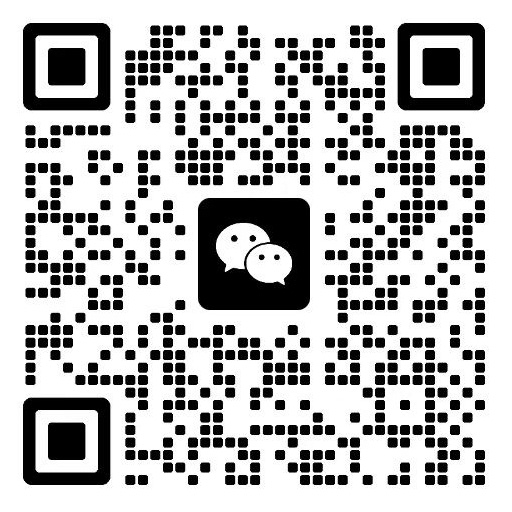The Origins of Theater
In seeking to describe the origins of theater, one must relyprimarily on speculation, since there is little concrete evidence on which to draw. The most widely accepted theory, championed by anthropologists in the late nineteenth and early twentieth centuries, envisions theater as emerging out of myth and ritual. The processperceived by these anthropologists may be summarized briefly. During the early stages of its development, a society becomes aware of forces that appear to influence or control its food supplyand well-being. Having little understanding of natural causes, it attributes both desirable and undesirable occurrences to supernatural or magical forces, and it searches for means to win the favor of these forces. Perceiving an apparent connection between certain actions performed by the group and the result it desires, the group repeats, refines and formalizes those actions into fixed ceremonies, or rituals.
Stories (myths) may then grow up around a ritual. Frequently the myths include representatives of those supernatural forces that the rites celebrate or hope to influence. Performers may wear costumes and masks to represent the mythical characters or supernatural forces in the rituals or in accompanying celebrations. As a people becomes more sophisticated, its conceptions of supernatural forces and causal relationships may change. As a result, it may abandon or modify some rites. But the myths that have grown up around the rites may continue as part of the group’s oral tradition and may evencome to be acted out under conditions divorced from these rites. When this occurs, the first step has been taken toward theater as an autonomous activity, and thereafter entertainment and aestheticvalues may gradually replace the former mystical and socially efficacious concerns.
Although origin in ritual has long been the most popular, it is by no means the only theory about how the theater came into being.Storytelling has been proposed as one alternative. Under this theory, relating and listening to stories are seen as fundamentalhuman pleasures. Thus, the recalling of an event (a hunt, battle, or other feat) is elaborated through the narrator’s pantomime and impersonation and eventually through each role being assumed by a different person.
A closely related theory sees theater as evolving out of dances that are primarily pantomimic, rhythmical or gymnastic, or from imitations of animal noises and sounds. Admiration for the performer’s skill, virtuosity, and grace are seen as motivation for elaborating the activities into fully realized theatrical performances.
In addition to exploring the possible antecedents of theater, scholars have also theorized about the motives that led people to develop theater. Why did theater develop, and why was it valued after it ceased to fulfill the function of ritual? Most answers fall back on the theories about the human mind and basic human needs. One, set forth by Aristotle in the fourth century B.C., sees humans as naturally imitative—as taking pleasure in imitating persons, things, and actions and in seeing such imitations. Another, advanced in the twentieth century, suggests that humans have a gift for fantasy, through which they seek to reshape reality into more satisfying forms than those encountered in daily life. Thus, fantasy or fiction (of which drama is one form) permits people to objectify their anxieties and fears, confront them, and fulfill their hopes in fiction if not fact. The theater, then, is one tool whereby people define and understand their world or escape from unpleasant realities.
But neither the human imitative instinct nor a penchant for fantasyby itself leads to an autonomous theater. Therefore, additionalexplanations are needed. One necessary condition seems to be a somewhat detached view of human problems. For example, one sign of this condition is the appearance of the comic vision, since comedy requires sufficient detachment to view some deviations from social norms as ridiculous rather than as serious threats to the welfare of the entire group. Another condition that contributes to the development of autonomous theater is the emergence of the aesthetic sense. For example, some early societies ceased to consider certain rites essential to their well-being and abandoned them, nevertheless, they retained as parts of their oral tradition the myths that had grown up around the rites and admired them for their artistic qualities rather than for their religious usefulness.
1. champion最常见的意思是冠军,但这里的champion是个动词,但他的意思应该与冠军有关,其实是拥护、支持的意思。原句说最为广泛接受的理论,后面又做了一个补充说明,说人类学家也怎么样的,所以至少应该猜出来是人类学家也接受的,答案没有接受,但有与接受同方向的词support,所以D是答案,A改变B争论C创造都错
2. attribute是归因于之意,表示因果关系,首先看attribute本身,想到contribute和distribute,tribute是礼物,颂歌之意,那么与之相关的动词意思应该是送给,之前的at只起到加强作用,所以attribute的意思应该类似给。原文说出于对自然的不了解,人们认为好的坏的事情都是由于超自然的力量导致的,所以ascribe归因于正确
3. 以origins of theater为关键词定位至本段第一句,one must rely primarily on speculation,主要靠推测,也就是A,主要是推论的的。不认识hypothetical的话之后有解释说没有事实证据,所以也能说明是推论的
4. ceremonial action做关键词定位至全段最后一句,说人们是感觉到了他们的仪式性的活动和他们所期望的那种结果之间的联系之后他们才做这些事情的。前一句说他们把无论好坏的结果都归因于超自然的力量,他们做这些事情是为了赢得超自然力量的眷顾,所以D为了整个社会的繁荣是正确答案。
5. 就近原则往前,而且this不指代单个的名词,而指代整个词组或者句子,所以指代的应该是前面的the myths may even come to be acted out under conditions divorced from these rites,指的是仪式与神话的分离,C正确,注意divorce不仅仅可以表示离婚,等于separation
6. autonomous自主的,自治的,自发的,从这个词本身看,auto是自动的意思,所以跟它最有关联的就是independent独立了。没看出来的看原文,接上题,说仪式已经与神话分开了,当举行仪式的时候,第一步是个什么什么样的活动,接下来才是美学的或者娱乐的活动,最浅显的想法是第一步应该是不美学也不娱乐的,就是没什么目的的,也就是自发之意了
7. 以abandon rites做关键词定位至全段倒数第三句,有个as a result,说明之前的句子是导致人们放弃这种仪式的原因,也正是问题的答案。随着人们越来越智慧,他们对超自然的能力的认识,还有超自然能力和他们所期待的结果之间的因果关系会变化,也就是很多人不再认为是超自然的能力在左右他们,所以B有了新的认识是正确答案
8. 排除法,原文第二句问Why did theater develop, 接着给出了两个原因,一个是人们乐于模仿,一个是人们想要把现实理想化,A答案对应原文倒数第二句objectify their anxieties and fears, B答案对应第二个原因,C答案对应第一个原因,所以D没说
9. 正如上题所解释的那样,先问了一个问题Why did theater develop, 接着给出了两个原因,所以答案是A,D虽然也说了两个理论,但原文没说这两个理论有什么问题,所以D错
10. penchant的意思是强烈倾向,嗜好,趣味。原文与penchant并列的词是imitative instinct,对于幻想的什么什么,上面两题都说了人们弄出戏剧的两个原因,一个是模仿,对应这道题里的imitative instinct,另外一个就是把现实理想化,也就是爱幻想。所以penchant应该表示喜欢,喜爱之意。compromise妥协和tradition传统都不靠谱,respect尊敬有些靠谱,但和inclination倾向比起来明显不是正确答案
11. 修辞目的题,for example标志着应该往前看,前面是观点后面是例子。前文说已经给出的两个原因都不对,所以需要额外的解释,那么for example之前的句子就是额外的解释。detached view of human problems指的是人们现实中遇到的问题和戏剧之间的分离,不是演戏的人和社会上其他人的分离,所以C对D错
12. 原句转折,说仪式虽然被抛弃了,但随着仪式产生的戏剧却保留了下来。A是条件,错,而且原文说rites没保留,A反了;B和A错的原因类似,首先因果关系错,其次myths没抛弃,说反了;C也错在抛弃了myths,与原文相反,D正确
13. 待插入句中有listener和storyteller,所以必须插在原文storytelling句之后,A和B排除,C的under this theory说明前面必须得有一个理论,Storytelling has been proposed as one alternative刚好是个理论,所以过渡紧密,不插入任何句子,答案应该是D,而且pleasures和待插入句中的enjoyment重复
14. 原文没说storyteller会到处走,所以the presence选项不对;
many选项对应第一段倒数第二句,解释见第四题,正确;
原文第二段第四句说人越来越聪明之后,对超自然力量的认识会变化,没说好事越来越多,the more选项错;
Some theories选项原文没说,错;
theater选项对应原文第三段的第二三句,正确;
the human capacities选项对应原文第五段提出的那两个原因,解释见第八题,正确



